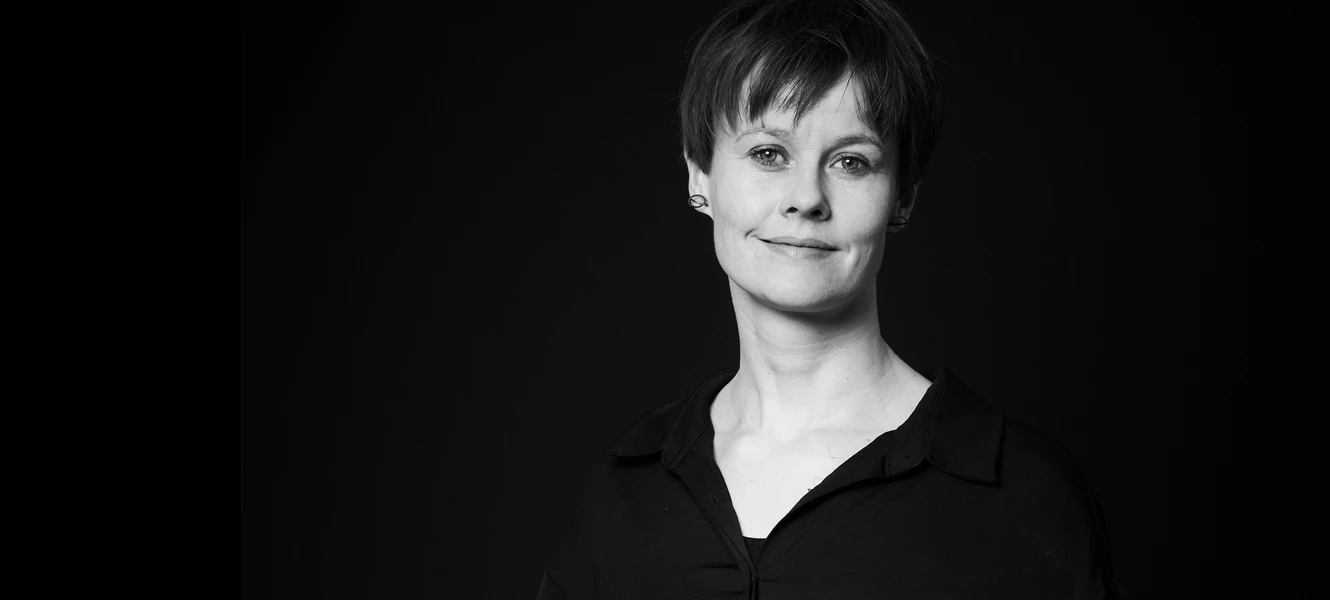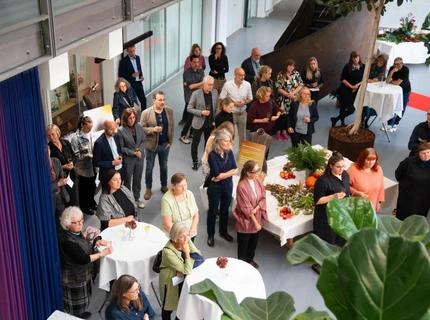
Theories about trampoline jumping and playing catch are going to create good design
“In the rough play there is a driving force and also some ‘petrol’ that adults can learn from. Play is about imagination, creativity and the ability to turn things on their head, and that’s a potential that companies and organizations should definitely exploit.”
Helle Marie Skovbjerg has barely settled in her professor's office at Kolding School of Design, but she is already acutely aware of why this brand-new position is super important:
“I look forward to highlighting the importance of play and for the first time ever being able to insist that play is a key element in our lives. Play says something important about the human condition. Therefore, it's essential that somebody puts a strong spotlight on how we create good environments where play can thrive and occupy a key position in the life we want to create here and now and in the future," she explains in regard to her imminent work as professor in play – the first of its kind in Denmark.
When poetry meets theory
Previously in her academic career at Danish as well as foreign universities, Helle Marie Skovbjerg has already experimented with translating observations of children's play into theory. And she’ll take that approach with her into the new professorship:
“The theoretical considerations must be operationalised directly into the design decisions. I don’t spend much time in my office during my research practice. I am constantly deeply anchored in how play actually unfolds. That also makes it easier to design," she explains, describing her appointment at Kolding School of Design as a match made in heaven:
"Kolding School of Design has a sense of the poetic and of the sensual and an appreciation that things happen that you had not imagined. The students are really good at designing for unpredictability, which is an essential part of play. At the same time, the school's approach to design has a strong focus on what I would call 'the work of the wise hand', and play is often a matter of getting something in your hand and then exploring the world through it. So I think a lot of good is going to come of it," says Helle Marie Skovbjerg.
A way to ‘being in the world’
The translation of theory into concrete design is one of the most important tasks – a design, mind you, that must benefit both children and adults:
"I work with what I call mood perspectives. The concept was created through empirical work with children, but the same ideas can apply to adults, "says Helle Marie Skovbjerg, letting us have a peek into her theoretical toy drawer:
"First, there are the ‘play paraphernalia', which are the props we always use when we play. It can be a swing, a seesaw or perhaps a particular kind of story. They are things we need in order to be able to play. Secondly there are 'types of practice', which can range from rough, physical expression to the more quiet, inconspicuous play in your room, for example when we are building a tower out of LEGO blocks. The final dimension is about 'mood': What is the sensation the different types to play offer the participants of being ‘in the world’?" Going forward, the professor, in collaboration with students and staff at Kolding School of Design, will be designing solutions for all three play perspectives that both children and adults will enjoy.
About the professorship
The appointment of Helle Marie Skovbjerg as Denmark's first professor in play is part of Kolding School of Design's overall focus on play, in close collaboration with the LEGO Foundation. In September 2017, the first design students were admitted to the new Master's programme, Design for Play. The initiative also includes the development of a play laboratory, the appointment of an associate professor/assistant professor and a number of PhD students. Over the next five years the LEGO Foundation will be contributing DKK25 million to the establishment of the programme
“Kolding School of Design has a sense of the poetic and of the sensual and an appreciation that things happen that you had not imagined. The students are really good at designing for unpredictability, which is an essential part of play. At the same time, the school's approach to design has a strong focus on what I would call 'the work of the wise hand', and play is often a matter of getting something in your hand and then exploring the world through it. Helle Marie Skovbjerg, Professor in Play, Kolding School of Design”


